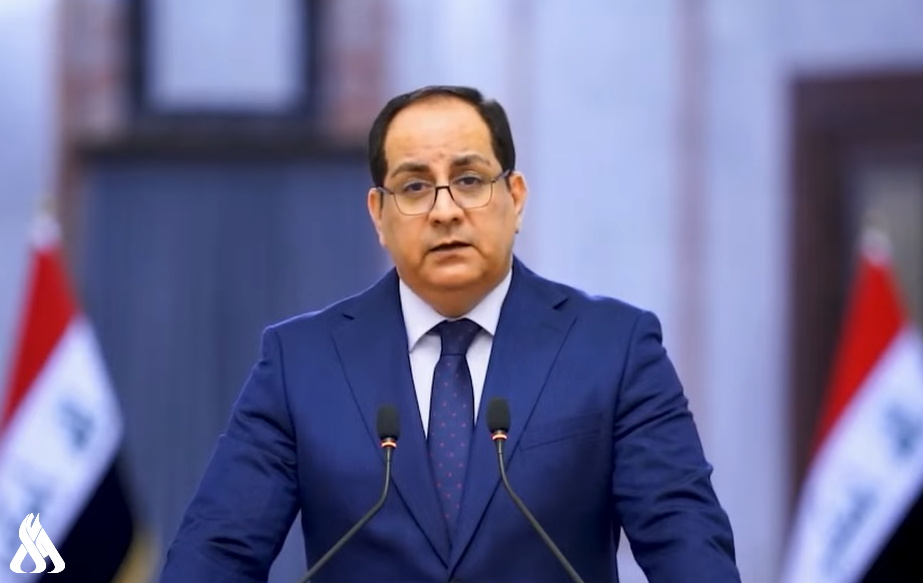
Baghdad – IA
On Wednesday, government spokesman Bassem Al-Awadi revealed government measures that contributed to reducing foreign debt.
To receive more news, subscribe to our channel on Telegram
Al-Awadi said in a statement to the Iraqi News Agency (INA): “The statement issued by the government about the external debt represents an important step, because the external debt circle was more like a secret and subject to personal speculation by the media and some people interested in economic affairs, if some were talking about 50 billion and 100 billion and 200 billion.
He added, “Prime Minister Muhammad Shiaa Al-Sudani relied on transparency and following up on these debts and then inventorying them, as he worked on them since the beginning of last year. When he took over his government, the external debt was around 19 billion and 700 million dollars, and this amount is classified into a group of sections and classifications, and it decreased last year by no means.” An act of renewal, but rather an act of working on these debts or these loans with diligent follow-up,” indicating, “The Sudanese formed a committee last year to follow up on foreign debts, which included representatives of the Ministries of Finance and Planning and financial advisors, as well as members of the Finance Committee in Parliament and various parties concerned with foreign debts.” .
He pointed out that “there were 13 loans with problems, some of them from previous years and others in the 2023 budget, and when the committee discussed them, it discovered that there were administrative and routine complex processes and difficulty in achieving them, so a question was raised about the reason for holding on to these loans, since we were unable to apply them on the ground or implement them.” After many years, especially since the annual tax will be paid whether it is implemented or not, the committee took a decision to cancel 13 foreign debts or loans.”
He pointed out, “We have 13 delayed loans or delayed projects financed externally with loans. For example, the wheat silos in Diwaniyah. There is also a loan worth hundreds of millions of dollars, such as the Mine Clearing Project of the Ministry of Environment. These projects are stalled due to administrative interventions and the like, and a large portion of them have been completed.” Giving it a period of 30 days to implement it.
He added, “Dozens of loans from the World Bank were restructured, as we have loans worth 10 million dollars and 5 million euros directed to the reconstruction of the governorates, and when they were followed up, we found that they were not strategic issues or large projects, so the committee took a decision to restructure these loans.”
He explained, “The committee took a decision not to allow any loan to be taken unless this loan is linked to a major strategic project in Iraq so that the Iraqi state can adopt it as a whole.”
He stated, “The committee sifted through all foreign debts, and the Ministry of Planning and the Ministry of Finance now have to submit a detailed report every three months to the Supreme Economic Council of Iraq and then submit it to the Council of Ministers and the Prime Minister to follow up on the matter.”
Al-Awadi had previously announced that the external debt would decrease to about 9 billion during the current year.
Al-Awadi said in a statement, received by the Iraqi News Agency (INA): “As an emphasis from the government on transparency in economic work, and informing public opinion and national and international media of Iraqi economic performance, and in light of the Council of Ministers’ approval of the recommendations of the Diwani Order Committee 23942, related to regulating borrowing.” The government took a series of executive measures and adopted a package of financial decisions that resulted in reducing the external public debt by more than 50%, bringing the debt down from $19.729 billion in late 2022 to $15.976 billion in 2023. Reaching approximately $8.9 billion this year.”
Al-Awadi added, “These financial steps, which included stopping a number of borrowing operations due to their delay and lack of productivity, organizing and managing debts, auditing them, restructuring some debts and directing them to create strategic projects, aim to prevent the Iraqi economy from mortgaging obligations that may affect the political decision in the future, or the path of development.” Nationalism coincides with an urban renaissance and infrastructure reconstruction, which opens the way to a promising future and a revitalized economy, in which our current and future generations perform best and obtain the greatest opportunities.”
Al-Awadi explained: “In a parallel context, the government organized the process of financing cooperation with the international community in specific contexts, including direct productive borrowing, providing sovereign guarantees to ensure the production of projects undertaken by the private sector for the benefit of the government, and sovereign guarantees provided by the government for the benefit of institutions that finance the importing Iraqi private sector.” For production lines in order to build factories inside Iraq.
He stressed, “These steps pave the way towards further integration of our country into the international economic cycle, and for the government to adopt the principle of productive borrowing only, which effectively leads to an increase in the domestic product, and the financing of national service and productive projects with economic returns, in a way that ensures their completion and is not delayed.” .
Al-Awadi continued, “With these firm steps, the government renews its determination to continue making a qualitative shift in the Iraqi economy, in parallel with tangible development in the services, infrastructure, and social care sectors, which are all the pillars required to meet the aspirations of our people throughout Iraq, and implement the government program with its priorities.” And its targets.


